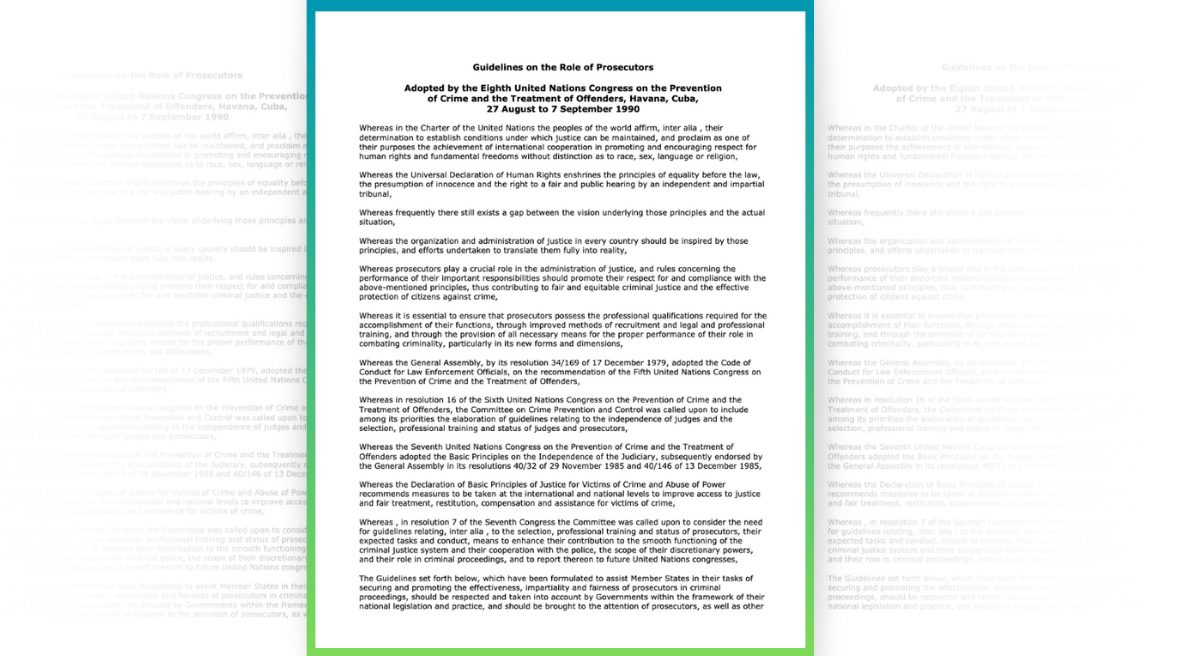Guidelines on the Role of Prosecutors
The Guidelines have been formulated to assist Member States of the United Nations in their tasks of securing and promoting the effectiveness, impartiality and fairness of prosecutors in criminal proceedings. Governments of Member States are mandated to respect and take the Guidelines into account within the framework of their national legislation and practice, ensuring that prosecutors, as well as judges, lawyers, members of the executive and the legislature, and the public in general, are made aware of the Guidelines. The Guidelines were formulated principally in consideration of public prosecutors in mind, but apply equally, as appropriate, to prosecutors appointed on an ad hoc basis. The Guidelines provide, among others, that States should ensure that selection criteria for prosecutors should embody safeguards against appointments based on partiality or prejudice, excluding any discrimination against a person on the grounds of race, color, sex, language, religion, political or other opinion, national, social or ethnic origin, property, birth, economic or other status. States should likewise ensure that prosecutors have appropriate education and training, and should be made aware of the ideals and ethical duties of their office, of the constitutional and statutory protections for the rights of the suspect and the victim, and of human rights and fundamental freedoms recognized by national and international law.
